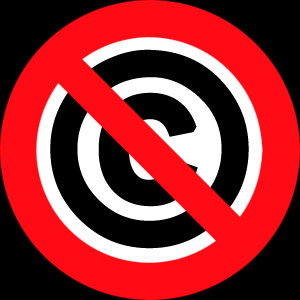
| HOME |
| NERVE |
| REVIEWS |
| ARCHIVE |
| EVENTS |
| LINKS |
| ABOUT US |
| CONTRIBUTORS |
| BACK ISSUES |
| CONTACT US |
Back to index of Nerve 20 - Summer 2012
Nerve brought together a few local artists to discuss the problems of copyright and some alternative ways that artists can make a living.
Problems of Copyright
 Alun
Parry:
Alun
Parry:
If I calculate how I get paid it isn’t through copyright, it’s
through live gigs and this is the case for most jobbing musicians. Copyright
is for those who’ve made it.
A bus driver will get paid for a day’s work. Someone isn’t
going to turn up in 20 years and give him a sack of money because he did
such a good job driving the bus in 1992. Artists can do something great,
then nothing for the rest of their lives, while everyone else goes to
work to make a living?
There’s got to be a different model other than copyright where musicians
can still put food on the table without having to drag their fans through
the courtroom. I love it when fans share my music, because here is someone
who has heard my music and liked it, then specifically targeted other
people who they think will like it too and introduced them to it, with
all the trust that goes with this from friend to friend. How much would
that cost if you paid a PR company to do it for you?
Vinny Spencer:
One of the things about copyright is that it’s like a worm on the
end of a hook. A singer came to a folk club that I was at a couple of
weeks ago and she told me of a friend of hers who wrote ‘Walking
on Sunshine’. She said that her friend is made for life, and this
was the only song that was a hit for her. This song is everywhere, on
the radio, on adverts, on television. So she’s constantly getting
royalties from that. So for me the issue is this. If you’re a musician
you do not get supported as of right. You can’t just go somewhere
and say, “I’m a musician, can you pay me so that I can live,
and then I can go out and write songs and play music?” We don’t
have any choice but to be self employed and do what we can to make whatever
money we can.
The fact is that anything that goes on the internet can be downloaded.
It’s like being a King Canute to try and stop that happening. But
it’s the big companies that we need to be focusing on and not the
individuals when it comes to copyright. Copyright means they can guarantee
an income.
Dan Lynch:
I believe in copyleft, which is [sort of] the opposite of copyright,
it’s enforced sharing. So what that means, in software terms, is
that if I write a programme and I distribute it under copyleft, you can
read the code and use it in any way. You might say well, it would work
better if it did this, and you change it. You are then legally obliged
to give those changes back to me under the same licence that you received
it in the first place. So this is like some form of digital Socialism.
All this is [still] enforced by copyright law, under a Creative Commons*
attribution share alike, which is one of their licences.
Live performance is becoming even more important because it’s really
hard to get paid for recorded music. The question of how can someone still
get paid after 20 years? Well, if they keep performing then they can.
Paul Green:
In my time in a band touring we never made any money, and I was always asking other bands how they survived. People were juggling jobs. It’s just admirable what people do to be able to play music. Liverpool is such a vast music community and we need to be more creative in how we develop this. As part of a collective or a co-operative we could use things such as regular live music nights, not just for the music. We could have market stalls and trading could take place; a sort of non-capitalist marketing. We could create our own mini-festivals where things are shared and there is agreement, on a collective basis, how any money can be shared.
Ritchie Hunter:
From a Nerve Radio perspective we would be concerned that anyone who tries to buck the system and starts to have an effect on things that are happening, with people gathering around, then this would become a focus for the establishment to close them down. If we were putting out music along with stuff that we would like to think is moving people to take action then these copyright laws are what they could use. The reason they don’t use the laws that much now is because most of the people downloading are individuals and don’t pose a threat as such. So this means that Nerve would need to be really careful what we play, and so it is important that we have this dialogue with the artists.
Alun Parry is a Liverpool singer-songwriter
who organises the Woody Guthrie Folk Club. See: parrysongs.co.uk/
Vinny T Spencer is a singer-songwriter
and a member of folk bands Rich Man’s Ruin and Our Morals. See:
radicalliverpool.com
Dan Lynch is a broadcaster, writer and
musician. See: danlynch.org
Paul Green and Ritchie
Hunter are on a Nerve radio production course.
Nerve are running further radio production courses for people who want to get involved.
*Creative Commons has six licences in the public domain including ‘non commercial’, which allows anyone to share unless it is for profit. It gives ‘creatives’ a choice on how to control their work. See: ‘Copyright & Piracy in the Digital Age’